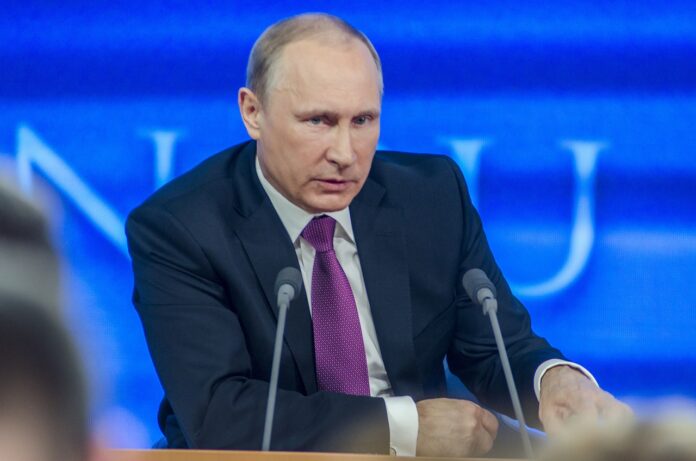Why Americans pay more for medicines? Trump points to Europe
/s3/static.nrc.nl/wp-content/uploads/2025/05/13190933/ANP-522430340.jpg)
Insulin, a drug for diabetic patients, costs more than six times as much in the United States as in Canada. It costs more than seven times as much as in Germany, and even more than ten times as much as in France. An average American spends $ 1,564 per year on prescribed medicinesa Dutchman only a third of that amount.
The towering medicine prices in the US are a known problem that has been campaigning for years. Senator and former presidential candidate Bernie Sanders first. Former presidents Obama and Biden also tried to tackle the high prices. Now President Donald Trump is also done with it. Supported by his health minister Robert F. Kennedy Junior – A notorious enemy of Big Pharma – He turned pharmaceutical companies on Monday. They are given thirty days to lower the prices of their medicines to up to eighty percent, he had it recorded in a new decree, otherwise sanctions will follow.
Trump only does not put the fault of those out of hand out of hand at the pharmaceutical industry, the sector that spoke his election campaign and whose lobbyists have been flattening the door with Republican (and also democratic) conference members for many years. According to him, the « socialist care systems » of European countries would be subsidized by US patients. That is why Trump makes Europe jointly responsible for his new mission: having the US pay as much for medicines as the country that pays the least for it. « We’re going to be right again, » he said in the White House on Monday, threatening, among other things, with extra import duties on European medicines. « The game has started. »
Why are medicines in the United States so expensive? And how serious is Trump’s plan?
Game started
In the United States, no price agreements are made between the government and pharmaceutical companies – a course of events that is unthinkable in Europe, but also in Canada and Australia, for example. In most other Western countries, a means, after it has been tested for safety and effectiveness, is also laid along the yardstick of cost -effectiveness: does the drug add something to the medicines that are already available? No, then the minister cannot decide not to reimburse it. Yes, it is determined which price is reasonable for the health gain that the medicine yields. The government often negotiates the pharmaceutical about that price.
In the United States, however, a safe and effective agent almost always comes on the market. The pharmaceuticalist may determine the price himself. This, unlike in many other countries, is not a legal limit. In fact, the two federal health insurance policies for the elderly and people with low incomes, Medicare and Medicaid, should not negotiate with pharmaceuticals according to the law. Parties, such as smaller private insurers, who are allowed, are so small and fragmented that they can hardly make a fist towards the pharmaceutical company.
The American system also uses so -called Pharmacy Benefit Managers (PBMs), large companies that act as mediators between pharmacists and buyers. The higher the price of the medicine they sell, the higher their own yield. « We are going to cut the intermediaries out, » Trump said about that
Social media platform Truth Social.
« The United States is the largest market for pharmaceuticals worldwide, but also pay the most. That Trump wants to do something about it, I can’t blame him for that, » says Carin Uyl-De Groot, professor Health Technology Assessment at Erasmus University in Rotterdam. On paper, Trump continues the good intentions of his predecessors, but Uyl-De Groot doubts whether Trump’s plans benefit American citizens. « If that were the case, he would not have tried to undermine the current Health Insurance Act (Obamacare) in all possible ways from his appointment. And it is also not clear of this plan how he wants to implement it. Trump also wants to increase the import duties on drugs from outside the US. Those drugs will be more expanded as a plan. wallet of the American patient. «
If Trump is already able to enforce competitive prices, it is expected that it will mainly work out for resources that are reimbursed by Medicaid and Medicare. How this will help the hundreds of millions of private insured Americans is not yet clear experts, including Uyl-de Groot.
Secret
« Trumps starting point is good, but the plan is still very vague, » says Aukje Mantel-Teeuwisse, professor of pharmacy and international health policy at Utrecht University. « For example, what price does Trump have if he says he wants to pay to eighty percent less for the drug? Is it about the price that the manufacturer requires for the drug, the price that the patient has to pay in the pharmacy, or the margins that all intermediate parties in the chain now break up? »
Mantel-Teeuwisse points out that Trump cannot know exactly what European member states pay for their medicines, because those price agreements are often secret. « Usually the minister negotiates with the pharmaceutical about the so -called list price, the price that the pharmaceuticalist asks for, and therefore something is going on. How will Trump check that and pay member states for it? »
Even if he would know, Mantel-Teeuwisse believes it is wrong to recover the bill on Europe. « Multiple studies indicate that pharmaceuticals are making much more profit than they say they need to be able to recover their research and development. But Trump does not say: shareholders must hand in part of the billion -dollar profits, or pharmaceuticals have to stop spending a ridiculous amount of money on advertisements aimed at consumers.
With the cooperation of Merijn de Waal.

/s3/static.nrc.nl/images/gn4/stripped/data131889241-8a0b12.jpg)
/s3/static.nrc.nl/wp-content/uploads/2025/05/14095527/web-1005BUI_Assimi.jpg)
:format(webp)/s3/static.nrc.nl/wp-content/uploads/2025/03/10103633/data128657291-ebcd99.jpg)



